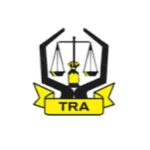TRA Data Management Officer II: 30 Interview Questions & Answers
Are you preparing for the Data Management Officer II position at the Tanzania Revenue Authority (TRA)? With 20 vacancies available, this role focuses on data engineering, analysis, and reporting to support TRA’s tax operations.
To help you ace your interview, we’ve compiled 30 common questions and answers, covering data management, analytics, and job responsibilities.
Let’s get started!
General Role Questions
1. What does a Data Management Officer II do at TRA?
✅ Answer:
“This role involves designing and maintaining data infrastructure (as a Data Engineer) and analyzing data trends to create reports that support TRA’s decision-making (as a Data Analyst).”
2. What qualifications are required for this position?
✅ Answer:
“A Bachelor’s Degree in Data Science, Computer Science, Information Systems, or a related field is required.”
3. Why is proficiency in English and Swahili preferred?
✅ Answer:
“TRA operates in both English and Swahili, so proficiency in both languages ensures clear communication and proper report preparation.”
4. What is the primary responsibility of a Data Engineer in this role?
✅ Answer:
“As a Data Engineer, I would design, build, and maintain databases, ensuring secure, efficient, and scalable data storage for TRA.”
5. What does the Data Analyst aspect of the job entail?
✅ Answer:
“As a Data Analyst, I would analyze tax data, identify trends, and create reports to support TRA’s revenue strategies.”
Technical & Analytical Skills
6. How does this role support TRA’s mission?
✅ Answer:
“By managing data efficiently, I help TRA collect, analyze, and report tax data, improving tax compliance and revenue management.”
7. What technical skills are essential for this position?
✅ Answer:
✔ Database Management (SQL, MySQL, PostgreSQL)
✔ Programming (Python, R)
✔ Data Visualization (Power BI, Tableau, Excel)
✔ Big Data Processing (Hadoop, Spark)
8. Will I need to work with tax-related data?
✅ Answer:
“Yes, I will work with taxpayer records, compliance reports, and revenue statistics to support TRA’s tax administration.”
9. What is a typical day like for a Data Management Officer II?
✅ Answer:
✔ Checking database integrity
✔ Running queries for tax data reports
✔ Fixing data inconsistencies
✔ Meeting with teams to discuss insights
10. How important is data security in this role?
✅ Answer:
“Extremely important! TRA handles sensitive taxpayer data, and securing it ensures privacy and compliance with regulations.”
Data Tools & Reporting
11. What tools might I use for data analysis?
✅ Answer:
✔ Excel (for spreadsheets & reports)
✔ SQL (for querying large datasets)
✔ Power BI & Tableau (for data visualization)
✔ Python & R (for statistical analysis)
12. Can you give an example of a data trend you might analyze?
✅ Answer:
“I might track monthly tax collection patterns to identify seasonal fluctuations or compliance issues.”
13. How do you ensure data accuracy?
✅ Answer:
✔ Validation checks
✔ Cross-referencing multiple data sources
✔ Maintaining clean data pipelines
14. What challenges might I face in this role?
✅ Answer:
✔ Incomplete datasets
✔ System downtimes
✔ Integrating data from multiple sources
15. How does teamwork play a role in this position?
✅ Answer:
“I will collaborate with IT staff, tax officers, and management to align data systems with TRA’s operational needs.”
Data Infrastructure & Processing
16. What is the most rewarding part of this job?
✅ Answer:
“Helping TRA make data-driven decisions that improve revenue collection and public services is highly fulfilling.”
17. Do I need prior experience with government data systems?
✅ Answer:
“No, but familiarity with data management principles and public sector databases is an advantage.”
18. How do you handle large datasets?
✅ Answer:
“I use efficient database indexing, SQL queries, and big data tools like Hadoop for faster processing.”
19. What’s an example of a report you might prepare?
✅ Answer:
“A quarterly tax revenue report, comparing different regions and highlighting trends or anomalies.”
20. How do you stay updated on data management trends?
✅ Answer:
“I follow data science blogs, attend webinars, and earn certifications in cloud computing and data security.”
Job-Specific & Behavioral Questions
21. Why does TRA need 20 Data Management Officers?
✅ Answer:
“TRA operates on a large scale across multiple regions, requiring several officers to manage diverse datasets and reporting.”
22. What soft skills are important for this role?
✅ Answer:
✔ Problem-solving
✔ Communication
✔ Attention to detail
✔ Time management
23. How might you use Swahili in this job?
✅ Answer:
“I might communicate with local staff or prepare reports for Swahili-speaking stakeholders.”
24. What’s the difference between a Data Engineer and a Data Analyst in this role?
✅ Answer:
✔ Data Engineer: Builds data infrastructure
✔ Data Analyst: Uses data to create insights
25. How do you troubleshoot a data infrastructure issue?
✅ Answer:
✔ Identify the issue (e.g., slow queries)
✔ Check logs for errors
✔ Optimize queries or increase resources
Future of Data at TRA
26. Could this role involve working with AI or machine learning?
✅ Answer:
“Yes, AI could help predict tax evasion trends or automate data cleaning, depending on TRA’s tech adoption.”
27. How do you prioritize tasks in this job?
✅ Answer:
“I prioritize tasks based on urgency (e.g., deadlines) and impact (e.g., fixing database errors affecting operations).”
28. What’s the career growth potential for this role?
✅ Answer:
“I can advance to Senior Data Manager, IT Director, or Data Scientist roles within TRA or other organizations.”
29. How does this role contribute to Tanzania’s economy?
✅ Answer:
“By improving tax data management, I help maximize revenue collection, funding public services like education and healthcare.”
30. What’s a key question to ask in an interview for this role?
✅ Answer:
“How does TRA leverage data to enhance tax compliance? This shows my interest in their strategy and my role’s impact.”
Final Tips for TRA Data Management Officer II Applicants
✔ Meet all qualifications – Have a degree in Data Science, Computer Science, or IT
✔ Master essential tools – Be proficient in SQL, Python, and Power BI
✔ Highlight security awareness – Show knowledge of data protection regulations
✔ Demonstrate analytical thinking – Prepare for real-world data challenges
Good luck with your TRA Data Management Officer II interview!


